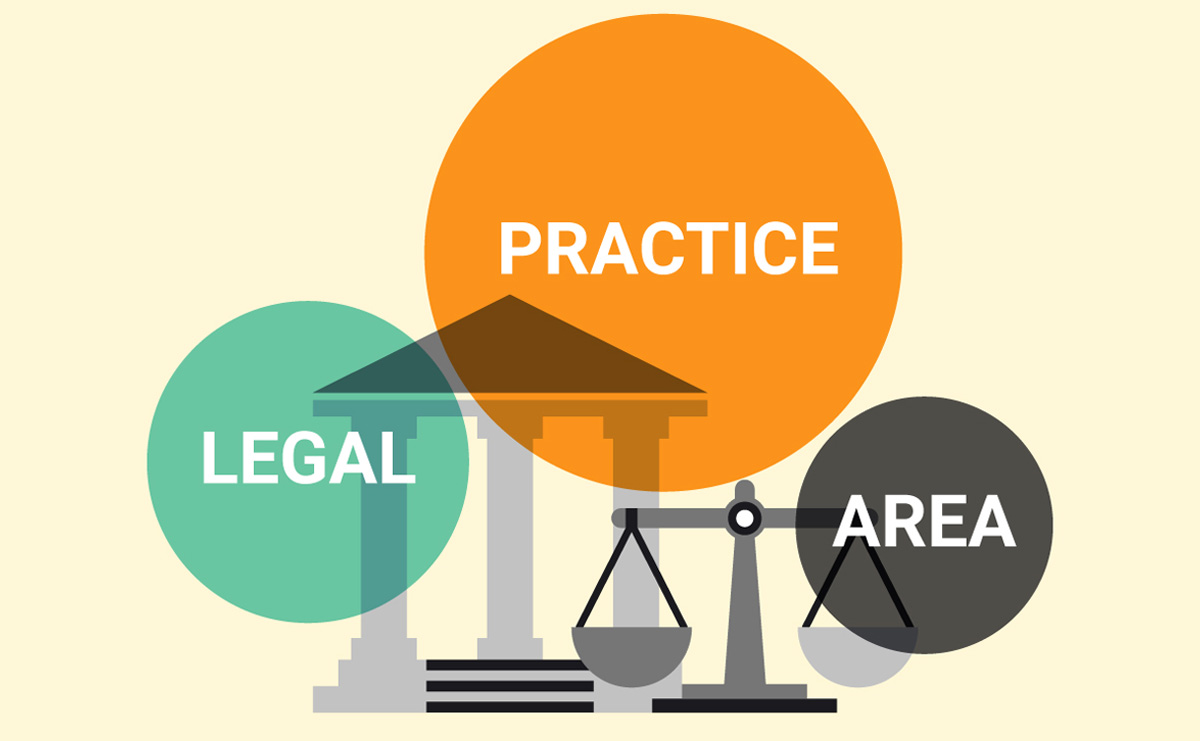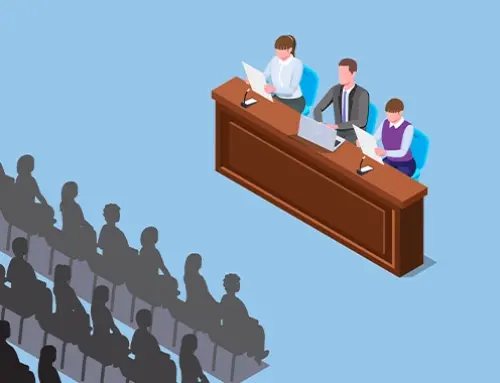Contents
How Lawyer Working Hours Vary Across Different Practice Areas
The legal world is known for its intense workload and high-pressure demands, but not every lawyer faces the same level of work. How many hours a lawyer puts in each week can depend on several factors, like the area of law they practice, the complexity of their cases, and the needs of their clients. The demanding nature of lawyer hours often involves working late nights and weekends, especially in high-pressure fields like corporate law and litigation. In this article, we will break down the differences in working hours across various fields of law, giving you a clearer picture of what to expect depending on the type of legal work involved.
Civil Rights Law: Intense but Rewarding Work
Civil rights lawyers fight to protect individuals’ rights in cases involving discrimination, police misconduct, voting rights, and other constitutional issues. While this field can offer a deep sense of purpose and fulfillment, it often comes with emotionally charged cases and significant time demands. Civil rights lawyers representing clients in litigation frequently work long hours preparing for court, conducting discovery, and engaging in advocacy. The unpredictable nature of civil rights cases, which may involve emergency filings or urgent matters, can lead to extended workweeks, especially for lawyers handling high-profile cases.

Corporate Law: Long Hours Driven by Deal Cycles
Corporate lawyer hours are notoriously long, with attorneys often working late into the night to meet tight deal deadlines and accommodate clients across different time zones. Corporate lawyers, especially those working in large firms or handling mergers and acquisitions (M&A), tend to work some of the most extended hours in the legal industry. The deal-driven nature of corporate law means lawyers must be available around the clock to finalize transactions, draft contracts, and negotiate terms. When deals are closing, corporate lawyers often work late or even through weekends to meet deadlines. These intense periods, known as “crunch time,” are common, with work weeks usually exceeding 60-80 hours. Young associates quickly learn that corporate lawyer hours can extend well beyond the typical 9-to-5, especially when preparing complex contracts or negotiating deals.
Litigation: Long, Unpredictable Hours
Litigation lawyers typically work long hours, especially when a case is heading toward trial. The pre-trial process, which includes discovery, motion practice, and preparing witnesses, can be extremely time-consuming. Additionally, litigators must be ready to adjust their schedules based on court deadlines and client needs, which can lead to extended work hours, particularly in the weeks leading up to a trial. While daily tasks like drafting motions may follow regular office hours, periods of intense preparation can easily extend a litigator’s workweek well beyond the standard 40 hours.
Personal Injury Law: Client-Driven and Case-Specific
Personal injury lawyers often face varied working hours depending on the stage of a case. The initial client consultations, case investigations, and negotiations with insurance companies typically follow a more structured schedule, but trials and settlements may demand additional time. The client-driven nature of personal injury law means that lawyers must be available when their clients need them, which can lead to unpredictable and extended working hours. However, some personal injury firms maintain more flexible schedules, allowing for a better work-life balance than in other fields.
Criminal Law: Court Schedules Dictate Hours
Criminal defense attorneys and prosecutors often have their schedules dictated by court calendars. While their working hours regarding court appearances and client meetings can be predictable, trial preparation, reviewing evidence, and strategizing with clients can lead to long hours outside the courtroom. Defense attorneys, in particular, may have to respond to emergencies, such as a client’s sudden arrest, leading to after-hours work. In contrast, some government-employed prosecutors or public defenders may have a more consistent 9-to-5 schedule, although heavy caseloads can still result in long hours.
Family Law: Moderate but Emotionally Intense
Family law practitioners who handle cases such as divorce, child custody, and alimony often have more predictable hours than corporate or litigation lawyers. However, family law can be emotionally draining, and the stakes are high for clients. This can result in significant time spent on client communication and case preparation. While the work hours might not reach the extreme levels seen in corporate law, family lawyers can still face periods of extended hours, particularly when dealing with contentious divorces or emergency custody hearings.
Immigration Law: Steady but High-Volume Workload
Immigration lawyers often have a steady but high-volume workload, handling cases related to visas, asylum, deportation defense, and naturalization. Immigration lawyers deal with many clients at any given time, which can create a sense of urgency, especially when clients face deportation or other critical deadlines. While their work hours may not be as unpredictable as corporate or litigation lawyers, immigration attorneys often work long hours, especially when preparing for court hearings, interviews, or urgent case filings. The complexity of immigration law and frequent policy changes add to the time demands.
Employment and Labor Law: Dependent on Client Needs
Employment and labour lawyers advise employers and employees on legal matters related to workplace rights, discrimination, contracts, and labour disputes. Their working hours often depend on whether they represent a business or an employee. Employment lawyers handling disputes, especially those leading to litigation, may work long hours preparing cases for trial or arbitration. On the other hand, those focused on drafting employment contracts or advising on compliance may have a more regular 9-to-5 schedule with fewer after-hours demands.
Intellectual Property Law: Intensive During Filing Seasons
Intellectual property (IP) lawyers, particularly those involved in patent filings, may experience fluctuations in their workload depending on filing deadlines and the patent application process. Patent lawyers often need long hours to prepare detailed and highly technical documents. Trademark and copyright lawyers may face less intense time pressures, but their hours can still be long when responding to infringement claims or preparing for litigation. Like corporate lawyers, IP attorneys might have a mix of predictable and high-demand periods.
Real Estate Law: Transactional but Time-Consuming
Real estate lawyers typically work in a transactional setting, which can mean long hours when deals close. They are responsible for reviewing contracts, negotiating terms, and ensuring that transactions comply with local, state, and federal laws. The cyclical nature of the real estate market can cause variations in working hours; during boom times, real estate lawyers might experience long weeks, while the workload may ease in slower markets. Commercial real estate deals often require significant coordination with multiple parties, which can extend the workday.
Trusts and Estates Law: Predictable but Detailed Work
Trusts and estates lawyers generally enjoy more predictable working hours than lawyers in other fields. Their work involves drafting wills, managing estate planning, and overseeing the administration of estates, which is mainly transactional and can often be scheduled during regular business hours. However, the detailed nature of estate planning and the need to be meticulous with documents can lead to extended hours, especially when handling large estates or resolving inheritance disputes. This field often appeals to lawyers seeking a better work-life balance.
In-House Counsel: More Predictable, but Not Stress-Free
In-house counsel positions often offer a more manageable work-life balance compared to law firm roles. However, the hours still depend on the company’s size and the nature of the industry. While in-house lawyers generally have more predictable working hours, they may still face periods of high pressure, especially when dealing with mergers, acquisitions, or regulatory investigations. In addition, in-house counsel is often expected to be available to provide immediate legal advice, meaning their working hours can sometimes extend beyond the typical 9-to-5 schedule.
Tax Law: Seasonal Surges
Tax lawyers experience significant fluctuations in their workload, particularly around tax filing season. These lawyers must keep up with constantly changing tax laws and regulations and often work long hours during the lead-up to tax deadlines. The work can be highly detailed, requiring significant time and attention. Tax lawyers may enjoy a more moderate schedule outside of tax season, though the complexity of tax law still demands long hours for more intricate cases or audits.
Non-Profit and Public Interest Law: A Balancing Act
Lawyers working for non-profit organizations or in public interest law often choose the field for its meaningful work rather than high salaries. As such, their work hours can be more balanced compared to other legal sectors. However, they may still need long hours depending on the scope of their cases and the number of clients they serve, especially in underfunded organizations. The emotional demands of the work can also add to the overall pressure, even if the working hours are less extreme.
Environmental Law: Project-Based Workload
Environmental lawyers deal with legal issues related to environmental protection, natural resources, and regulations surrounding pollution, land use, and conservation. Their working hours often fluctuate based on the cases they handle, which legislative developments, environmental crises, or corporate compliance needs can drive. Many environmental lawyers work in government agencies, non-profits, or in-house at corporations, where they may have more predictable hours. However, when major environmental incidents occur or during periods of regulatory change, they can face extended workdays and the need to respond quickly to urgent matters.
Bankruptcy Law: Intense During Economic Downturns
Bankruptcy lawyers typically experience a spike in workload during economic recessions or downturns when more individuals and businesses file for bankruptcy. Their work involves advising clients on restructuring debts, negotiating with creditors, and navigating the bankruptcy court system. During periods of economic crisis, bankruptcy lawyers often work long hours, juggling a large caseload and handling time-sensitive filings. Outside of these peak times, their workload may stabilize, offering a more predictable schedule, but the complexity of bankruptcy cases can still require extensive time and effort.
Entertainment Law
Entertainment lawyers often work with artists, actors, musicians, and producers, handling contract negotiations, intellectual property, and other legal matters. Their work hours can fluctuate based on production schedules, contract deadlines, or crisis management during disputes. They typically work 40-65 hours per week, more flexible than corporate lawyers but occasionally working long hours during peak times.
Balancing Work and Life in Different Legal Fields
Balancing lawyers hours with personal time is a challenge many attorneys face, especially in the early stages of their careers. Lawyers across different fields often face long working hours, but those hours can vary significantly depending on their practice area. For instance, corporate law, litigation, and intellectual property law tend to demand more time, especially during mergers, trials, or patent filings. On the other hand, lawyers in trusts and estates, family law, or public interest law usually have more predictable schedules, although they can still experience busy periods during critical phases of their cases.
When choosing a practice area, aspiring lawyers should consider the type of work they want to do, the clients they would like to serve, and the legal issues that excite them. While some fields offer prestige and higher salaries, they often come with longer hours and a greater challenge to maintain work-life balance. In contrast, areas with more moderate hours may offer a better balance between work and personal life but might come with lower compensation or less job security.
By understanding how hours differ across legal fields, lawyers can make more informed career decisions that align with their goals and values. The legal profession can be demanding, but finding the right practice area can help lawyers balance their career ambitions with personal well-being.
How RunSensible Enhances Work-Life Balance for Lawyers
RunSensible is a powerful tool that can improve work-life balance for lawyers by streamlining various administrative processes and reducing the hours spent on non-billable tasks. One of its key features is automated time tracking, which eliminates manual time logging and allows lawyers to focus on core legal work. This automation saves time and frees up space for personal activities, ensuring work does not dominate the day.
The software task management and prioritization tools help lawyers stay organized and efficiently manage deadlines. Lawyers can significantly reduce routine administrative work and focus on higher-value activities by prioritizing essential tasks and utilizing document automation for repetitive duties. This improves productivity and reduces the need for extended work hours.
Additionally, integrated client communication tools streamline interactions by consolidating emails, calls, and follow-ups into one platform. This allows for quicker responses and reduces the time spent on communication tasks. Flexible scheduling features help lawyers manage appointments efficiently, avoiding after-hours work and improving the separation between personal and professional time.
RunSensible also offers empowering remote work capabilities, allowing lawyers to manage their work from anywhere, providing greater flexibility. Through CRM integration, the platform simplifies client onboarding and follow-ups, enhancing overall efficiency and helping maintain a balanced workflow.
By optimizing these processes, RunSensible enables lawyers to reduce their working hours, focus on billable tasks, and achieve a more relaxed and balanced work-life balance.
Final Thoughts
The number of hours lawyers work varies greatly depending on their field of practice, client needs, and the nature of their cases. While some legal areas demand intense, unpredictable hours, others offer more structured schedules, improving work-life balance. Understanding these differences is crucial for aspiring lawyers evaluating career paths that align with their personal goals and values.
However, regardless of the practice area, maintaining a healthy balance between work and personal life is essential for long-term success and well-being. Tools like RunSensible can significantly achieve this balance by automating administrative tasks, streamlining processes, and improving efficiency. By leveraging technology, lawyers can focus more on their core legal responsibilities while enjoying the flexibility to manage their time better, leading to both professional growth and personal fulfillment.
Book a personalized demo to discover how RunSensible can help you reduce your administrative work hours and improve your work-life balance.
Frequently Asked Questions
Do lawyers work on weekends in different areas of practice?
Many lawyers work on weekends, but the extent of their weekend commitments depends on their area of practice and workload. Corporate lawyers, especially those involved in mergers, acquisitions, or other time-sensitive deals, often work through the weekend to meet tight deadlines. Similarly, litigators preparing for court may spend weekends drafting motions, reviewing case files, and preparing arguments, particularly when a trial date is near.
Family lawyers handling cases like divorce or child custody might also work on weekends, especially when clients require urgent attention. However, their need for weekend work tends to be less frequent compared to corporate or litigation lawyers. Personal injury lawyers, in contrast, often enjoy a more flexible schedule, occasionally working on weekends for settlement negotiations or court preparations.
Criminal defense attorneys are more likely to work weekends, particularly if they need to respond to arrested clients or handle bail hearings, which can occur outside of regular business hours. Real estate lawyers also work weekends during periods of high market activity, especially when deals require quick closings.
Do lawyers work outside traditional hours?
Yes, many lawyers work outside traditional business hours, which is quite common across various areas of law. Legal work often requires flexibility due to tight deadlines, the complexity of cases, and the need to accommodate client availability.
Do lawyers have control over their work hours?
Lawyers have varying degrees of control over their work hours, depending on their practice area, work environment, and level of seniority. Corporate lawyers and litigators, especially big firms, often need more control due to client demands, tight deadlines, and court schedules, leading to long and unpredictable hours. Criminal defense attorneys also face limited control, as they must be available for emergencies like late-night arrests or bail hearings. Despite the flexibility of running their own practice, solo lawyers often put in extensive lawyer hours to manage both client cases and administrative tasks. Personal injury and family law attorneys often enjoy moderate control, though court deadlines and client availability still influence their schedules. Public interest lawyers and senior lawyers typically have more flexibility, though urgent matters can reduce this. While some lawyers can structure their time more freely, external factors often dictate their work hours.
What hours do lawyers work?
Lawyers typically work long hours, often exceeding the standard 40-hour workweek, with many averaging between 50 to 60 hours per week, though it can vary based on their practice area and firm size. Lawyers in large firms, especially junior associates, can work 60 to 80 hours per week, particularly during busy periods like corporate transactions or trial preparations. Corporate lawyers, especially those handling mergers and acquisitions, frequently work late into the night, while litigators may have 12 to 14-hour days leading up to trial. Criminal defense attorneys often face erratic hours due to emergency cases. At the same time, family and personal injury lawyers generally work around 40 to 50 hours per week but may extend their schedules during busy times. Solo practitioners and small firm lawyers often work 50 to 70 hours weekly, balancing client work and business management. In contrast, public interest lawyers typically maintain a 40 to 50-hour workweek, though urgent legal matters can push them to work longer. Overall, lawyer hours can be demanding, especially in high-stakes or competitive fields.
What time do lawyers start work?
The time lawyers start work varies depending on their firm, practice area, and workload, but many typically begin their day between 8:00 AM and 9:00 AM. Litigators may start even earlier if they have court appearances or hearings scheduled, with some beginning their workday as early as 7:00 AM to prepare.
Are law offices open on weekends?
Most law offices are officially closed on weekends, though availability can vary depending on the type of law practiced. Large law firms may have attorneys or staff working weekends during critical periods, such as trial preparations or corporate deal closings. However, the office is typically closed to the public. Even if their offices are not officially open, criminal defense attorneys often handle urgent weekend matters, such as arrests or bail hearings. Personal injury and solo practitioners may not have regular weekend hours but can be reachable by appointment or for urgent needs. Public interest firms usually follow standard business hours and are closed on weekends, although they may respond to emergencies.
Disclaimer: The content provided on this blog is for informational purposes only and does not constitute legal, financial, or professional advice.







